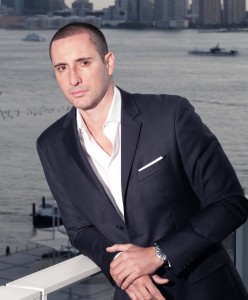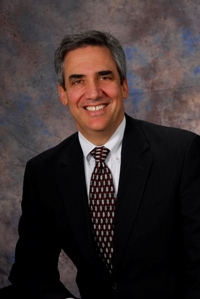American developers started dreaming about Cuba’s 2,300 miles of undeveloped coastline and its expansive beaches the moment President Barack Obama announced plans to normalize relations in December.
But a lot must happen before those dreams can become reality.
The State Department held its fourth round of talks to re-establish diplomatic relations with Cuba last month. If successful, it would be a step toward ending the U.S. embargo in place since 1962 — and toward opening the floodgates for development.
The embargo is a key obstacle because it must be lifted by Congress. And the politics of lifting it will be difficult to conquer — especially with the 2016 Presidential election campaign already underway.
It is also still unclear how foreign investment will be handled. Cuban law prohibits foreigners from owning land, which means that partnerships or other arrangements would likely be required before U.S.-backed development could move forward.

Horacio LeDon
Horacio LeDon, president of Douglas Elliman Development Marketing in Florida and California (and of Cuban descent himself), said that the law will be the biggest hurdle for Americans.
“I would love to tell people ‘let’s go buy property,’” he said. “It’s just not legal.”
LeDon, who has visited Cuba 17 times in the last two decades, said that private individuals and investors have reached out to him, including many based in New York. He tells those who can’t wait to get their hands on a piece of Cuban real estate that there is enough time and enough land for everyone.
“You got more time than you could ever imagine,” he said. “The market won’t run away from you … you’ve got 2,000 miles of coastline that aren’t going anywhere any time soon.”
Others are not as patient.
In fact, some began inquiries immediately after Obama’s announcement.
“Not a day went by that I didn’t receive a call,” said Andres Blanco, a Cuban-born vice president with commercial firm Savills Studley in Miami. The frenzy has since simmered down, but Blanco still gets weekly inquiries from investors interested in finding opportunities.
The phone has also been ringing at the Peebles Corporation with investors interested in teaming up in Cuba in the future, said Tawan Davis, the chief investment officer for the firm, which has projects in New York, Washington, D.C.
and Miami.
Peebles isn’t eyeing a particular property or site, but is intrigued by the opportunities there.“It’ll be an emerging market in our own backyard with an infrastructure in dire need of redevelopment,” Davis said, drawing a comparison between the normalizing of relations between China and the U.S. in the 1970s.

He predicted Cuba could be a similar “success story.”
He said once the policy changes are made interested investors should plan on acting fast. “Cuba’s economic boom,” he said, “will happen more quickly than people expect.”
Whatever the pace, LeDon said he expects to do a lot of business in his native land.
“The market demand will be there immediately. It’ll be the place to be,” said Marc Magazine, executive managing director of hospitality for Savills Studley in Washington D.C. “The pricing will be fantastic.”
There’s already plenty of interest in travel to Cuba.
Obama eased some restrictions on visiting the island in December, and American travel there spiked immediately.

Marc Magazine
Even though traveling for tourism purposes is still officially prohibited by U.S. law, the Associated Press reported a stunning 36 percent spike in American visitors in Cuba from Jan. 1 through early May.
Those numbers are only likely to rise, as will the demand for high-quality hotels and resorts, industry insiders said.
Right now, options are limited: There are a handful of resorts operated by foreign hospitality firms and a few Cuban-owned hotel chains, but many visitors opt for “casas particulares,” or in-home stays with Cuban families.
In fact, there are more than 1,000 Cuban listings on Airbnb.
But the accommodations there still fall short of what many American travelers are accustomed to.
“It’s the hottest thing on hoteliers’ minds,” Magazine said. “There are some nice hotels in Cuba. But there are no American hotels.”
Blanco said once the embargo is lifted he’ll be ready to do business as well.
“Commercial real estate is going to be booming for many years,” he said. “Cuba has been the forbidden fruit for 56 years. That’s a long time.”
